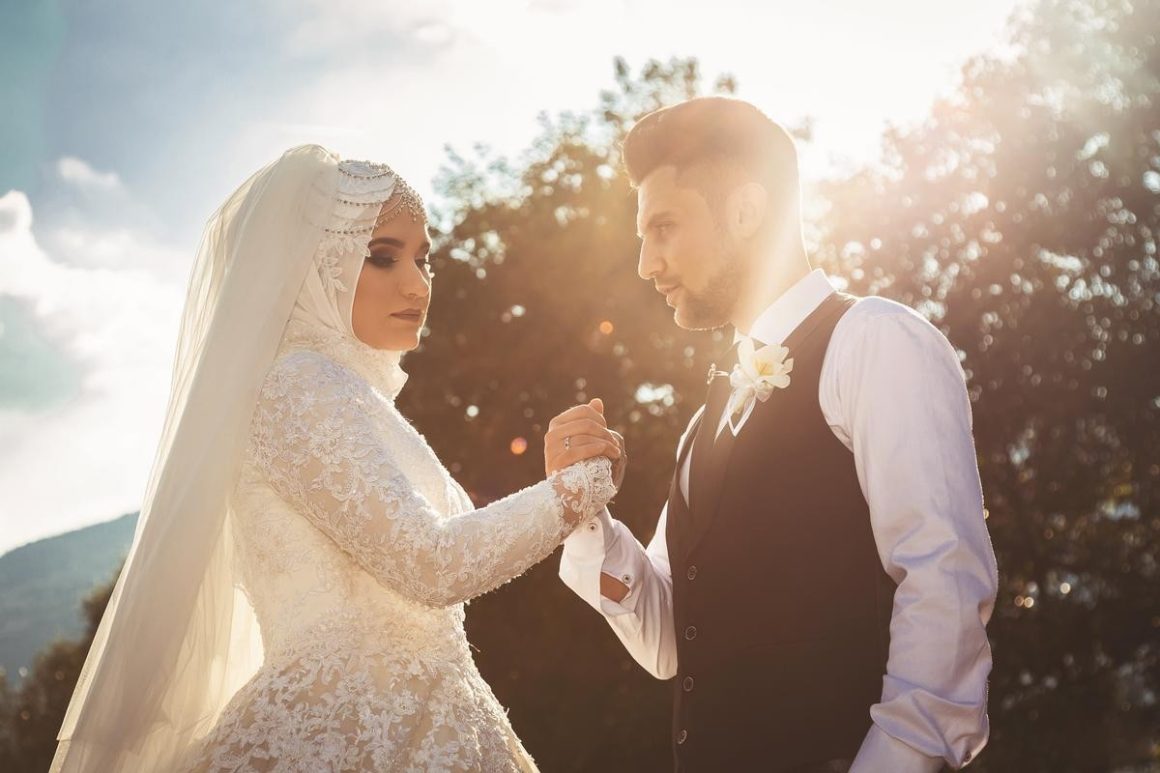Love, joy, and cultural richness come together in a splendid display during Islamic wedding celebrations. These ethose are well reflected in Islamic Wedding cards shared by the hosts, containing a breakdown of the important rituals about to take place. These joyous events hold immense significance in Islamic traditions, bringing families and communities closer. The beauty of an Islamic wedding lies not only in its spiritual aspects but also in the colourful rituals, delectable cuisine, and lively atmosphere that envelopes the occasion. In this article, we will discover five exciting aspects of Islamic wedding celebrations that make them truly unforgettable!
Table of Contents
Pre-Wedding Rituals and Preparations:
Islamic weddings are more than just a one-day affair, as you can tell from the Islamic Wedding cards; they are a journey that begins with a series of pre-wedding rituals and preparations. The engagement ceremony, known as Mangni or Nikah, is the first step in this journey, where the couple exchanges rings and officially declares their intent to marry. It is a heartwarming moment for the families as they come together to bless the union.
Another cherished pre-wedding tradition is the henna night, or Mehndi, where the bride’s hands and feet are adorned with intricate henna designs. This event is held separately, with the time specified in the Islamic Wedding card. It is a riot of colours, music, and dance as friends and family celebrate with the bride before the wedding day. The atmosphere is filled with excitement and anticipation, making it a truly memorable experience.
The Spiritual Journey of the Nikah:
At the heart of every Islamic wedding lies the Nikah, the religious marriage contract. It is a moment of profound spiritual significance as the couple publicly declare their commitment to each other and to their faith. The presence of loved ones as witnesses makes the occasion even more special. The schedule of the Nikah is present in the Islamic Wedding invitation.
The Nikah ceremony is conducted by a religious officiant who leads the couple through prayers and recitations from the Quran. The couple accepts each other as partners for life, and the entire gathering offers blessings and prayers for their future together. This sacred event symbolizes the beginning of a lifelong journey of love and devotion.
Colourful Festivities and Decorations:
Islamic weddings are known for their extravagant decorations and vibrant atmosphere. The wedding venues are transformed into magical settings with ornate decorations, colourful drapes, and beautiful floral arrangements. The ambience is filled with love and joy, reflecting the happiness of the couple and their families.
The bride and groom, as well as the guests, adorn themselves in traditional clothing, adding to the visual spectacle of the celebration. The bride’s stunning wedding attire, often featuring intricate embroidery and designs, is a sight to behold. Meanwhile, the groom’s elegant outfit radiates an aura of grace and charm. Guests don their best traditional attire, creating a visually enchanting display of cultural diversity.
Delectable Cuisine and Sweets:
No celebration is complete without delicious food, and Islamic weddings are no exception. The culinary experience during these festivities is nothing short of extraordinary. A wide array of traditional dishes is served, each reflecting the rich flavours of Islamic culture.
From mouthwatering biryanis to delectable kebabs and savoury curries, the feast caters to every palate. Additionally, the dessert table is a delightful assortment of sweet treats like baklava, sheer khurma, and gulab jamun, leaving guests with a taste of pure indulgence.
Music, Dance, and Celebratory Entertainment:
The celebration continues with music, dance, and entertainment, making the entire event come alive with joy. Traditional music performances uplift the spirits of the guests, encouraging them to participate in the festivities. Dance performances, whether traditional folk dances or modern choreography, add an extra layer of vibrancy to the celebrations.
Cultural shows and entertainment acts often showcase the diversity of Islamic heritage, giving guests a glimpse into the richness of different cultures. The communal spirit of celebration binds everyone together in a shared experience of joy and merriment.
Conclusion
Islamic wedding celebrations are a beautiful amalgamation of love, spirituality, and cultural richness. The pre-wedding rituals and preparations, the spiritual journey of the Nikah, the colourful festivities and decorations, the delectable cuisine, and the lively entertainment make these celebrations truly unforgettable.
As we witness the union of two souls, we also witness the unity of families and communities coming together to celebrate love and joy. The joyous art of Islamic wedding celebrations is a testament to the beauty of traditions, the strength of relationships, and the sheer happiness that arises when people unite in celebration. Let us cherish and appreciate the magic of these celebrations and the cultural richness they bring to our lives.


